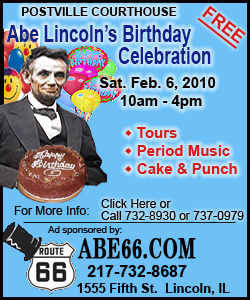| ||||||||||
| ||||||||||
"It's going to be the Wild Wild West," said Ben Ginsberg, a Republican attorney who has represented several GOP presidential campaigns. "If corporations and unions can give unlimited amounts ... it means that the public debate is significantly changed with a lot more voices and it means that the loudest voices are going to be corporations and unions." The legal community was split over whether corporations or unions would be the biggest beneficiaries. "I'd be surprised if it opens new express advocacy by big publicly traded corporations," said Joseph Birkenstock, a former chief counsel for the Democratic National Committee. Big firms, sensitive to the feelings of many shareholders and customers, not to mention Congress, would be less inclined to affix their name to a hard-hitting negative ad calling for a candidate's defeat. Instead, corporations, large or small, may be more likely to funnel their cash to broad industry groups, and let them mount political campaigns that keep individual corporate fingerprints off the effort. Indeed, trade associations already weigh in politically; the court's decision will simply empower them to be more explicit closer to election day. But unions would also benefit. The AFL-CIO filed a friend of the court brief calling for more freedom to run political ads. Labor organizations have a long history of political activity. In last year's presidential election, they ran millions of dollars in ads that stopped short of calling for a candidate's election or defeat. But their intent was clear. "Given how extensively many unions are involved in various aspects of the election process, such as get-out-the-vote drives and the like, there seems little doubt that these same unions will have strong motivation to now engage in election-related independent spending," said Richard Pildes, a constitutional law professor at the New York University. Emboldened by the ruling, critics of campaign finance regulation may now challenge the ban on direct corporate donations to candidates. "If all speakers are going to be treated the same, why wouldn't a corporation be able to make a contribution to a candidate just like a PAC or an unincorporated association or an individual?" said James Bopp Jr., a campaign finance lawyer who has fought limits on political money. The decision also may strengthen political party groups that seek to end the McCain-Feingold ban on unlimited contributions to parties from labor and corporations.
Stevens, in a 90-page opinion that dwarfed Kennedy's, complained that the court majority overreached by throwing out earlier Supreme Court decisions that had not been at issue when this case first came to the court. "Essentially, five justices were unhappy with the limited nature of the case before us, so they changed the case to give themselves an opportunity to change the law," Stevens said. The case began when a conservative group, Citizens United, made a 90-minute movie critical of Hillary Rodham Clinton as she sought the Democratic presidential nomination. Citizens United wanted to air ads for the movie and distribute it through video-on-demand services on local cable systems during the 2008 Democratic primary campaign. But federal courts said the movie looked and sounded like a long campaign ad, and therefore should be regulated like one.

[Associated
Press;
Copyright 2010 The Associated Press. All rights reserved. This material may not be published, broadcast, rewritten or redistributed.

News | Sports | Business | Rural Review | Teaching & Learning | Home and Family | Tourism | Obituaries
Community |
Perspectives
|
Law & Courts |
Leisure Time
|
Spiritual Life |
Health & Fitness |
Teen Scene
Calendar
|
Letters to the Editor